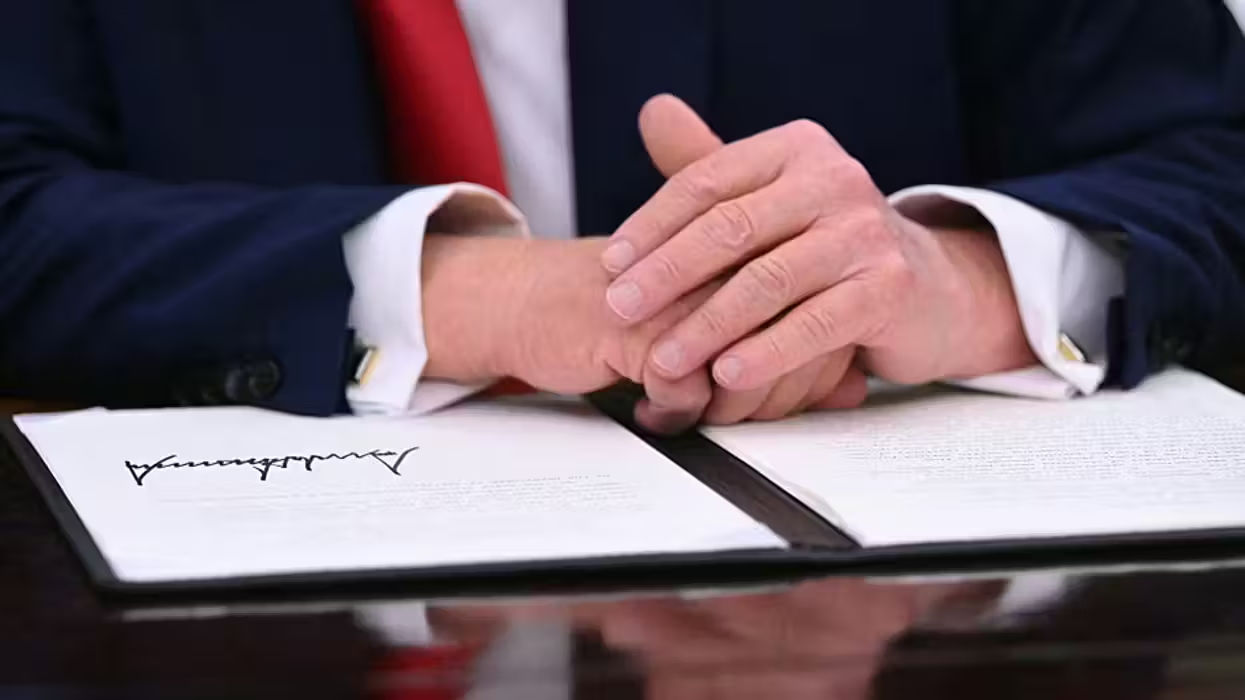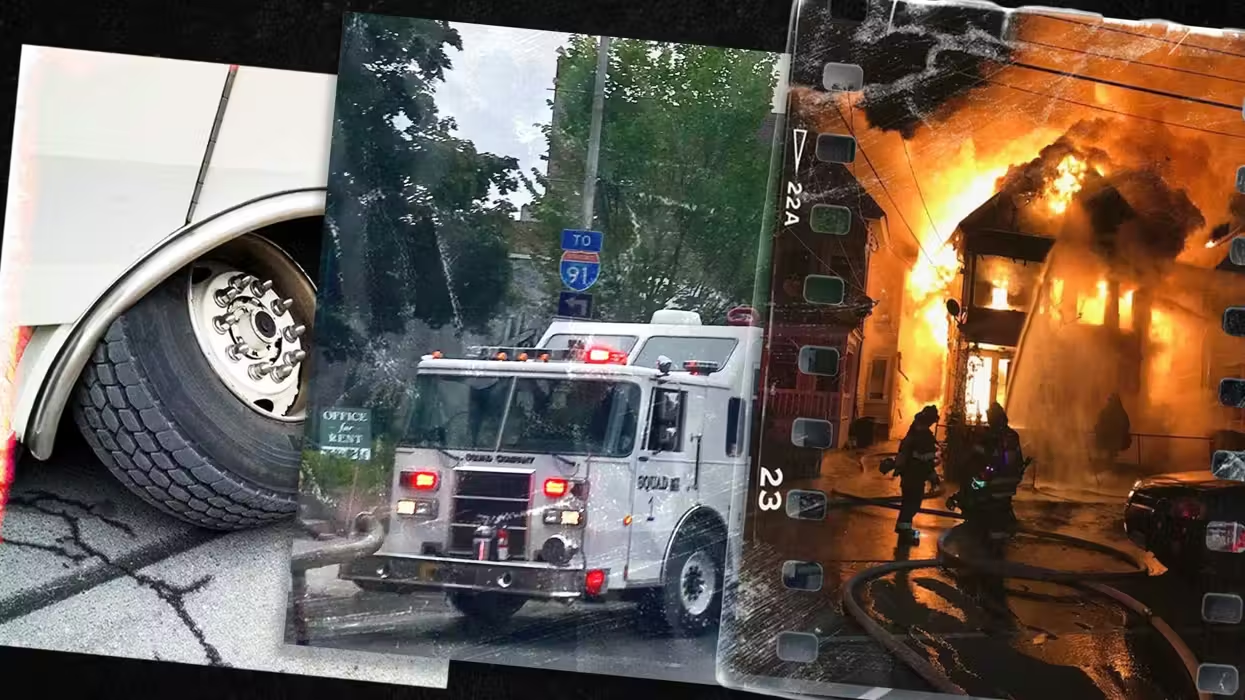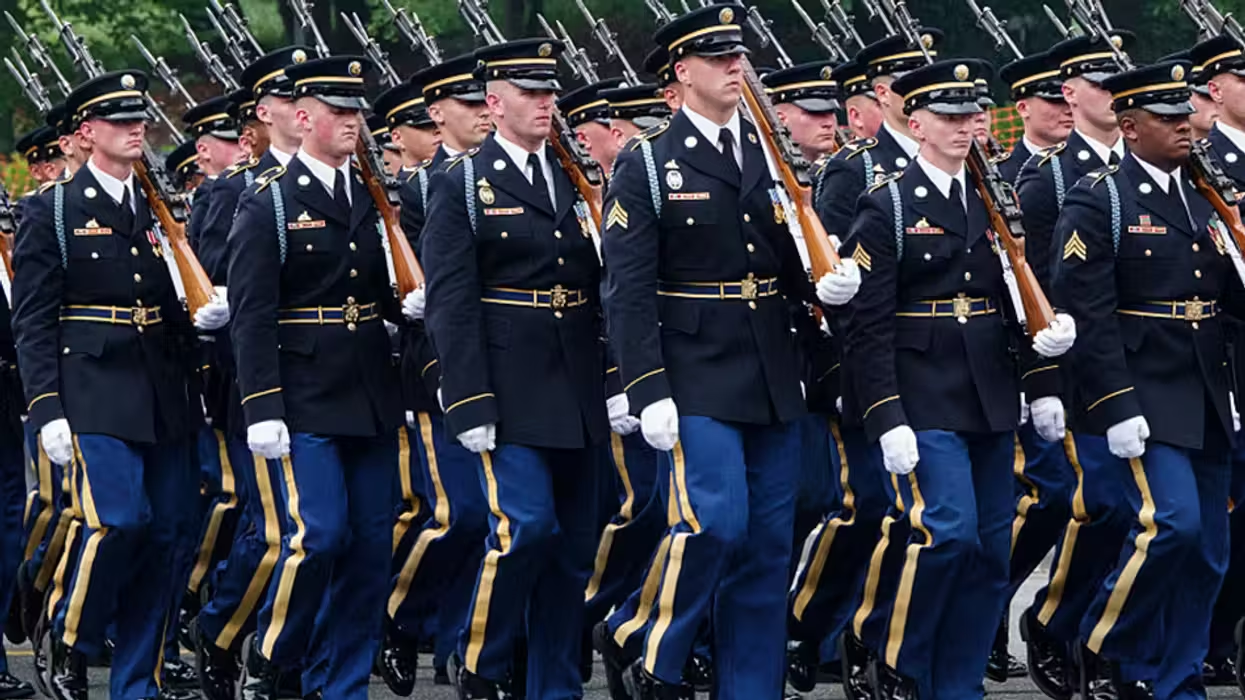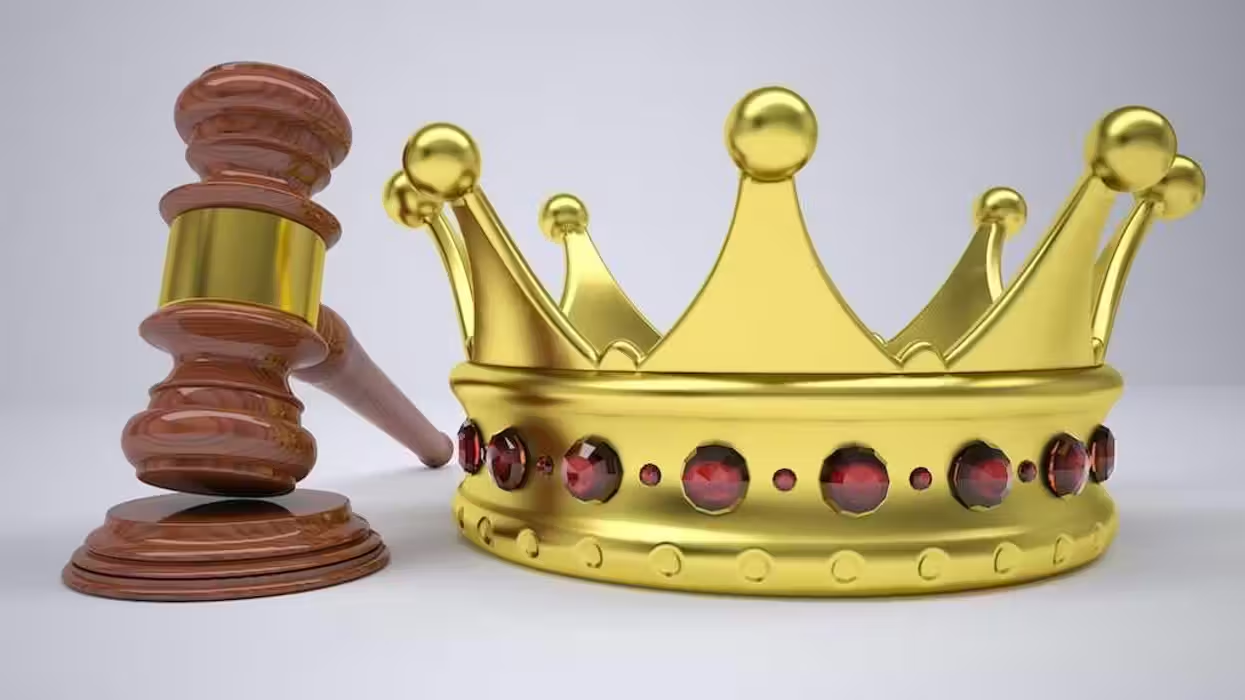© 2025 Blaze Media LLC. All rights reserved.
Sticky Situation: New Bill Would Make Selling Fake Maple Syrup a Felony With 5 Yrs in Prison
October 31, 2011
"This is fraud, plain and simple, and it undermines a key part of Vermont's economy."
 MONTPELIER, Vt. (AP) -- A Vermont couple thought they were getting a sweet deal on real Vermont maple syrup when they found a good price for it on the Internet.
MONTPELIER, Vt. (AP) -- A Vermont couple thought they were getting a sweet deal on real Vermont maple syrup when they found a good price for it on the Internet.
The man who was selling it told them he was a trucker from Rhode Island who passed through Vermont and that he would meet them in Brattleboro to give them their syrup, said Henry Marckres, a maple specialist with the Vermont Agency of Agriculture.
Turns out the syrup they bought in 2009 wasn't real at all, officials say. Tests show it was pure cane sugar.
It didn't take long for the couple from Vermont - the largest producer of maple syrup in the country- to discern a phony.
The taste wasn't quite right, Marckres said. It looked like syrup, but was too light in color to be labeled as Grade B syrup, which is dark, said Marckres.
"It was sweet, but it had no maple flavor at all," he said.
To protect the purity of Vermont's signature crop and to dissuade others from passing off fake maple syrup for the real thing - which sells for about $50 a gallon - Vermont's two U.S. senators have co-sponsored a bill that would make it a felony to sell fake maple syrup as the real thing. It would also increase the penalties in existing law from one year to five years in prison.
"Vermonters take pride in the natural products our state produces," said Sen. Patrick Leahy, D-Vt. He says the growing number of individuals and businesses selling fake maple syrup alarms him.
"This is fraud, plain and simple, and it undermines a key part of Vermont's economy," he added.
Co-sponsoring the bill - the Maple Agriculture Protection and Law Enforcement (MAPLE) Act with Leahy are Sen. Bernie Sanders, I-Vt., Maine Sens. Olympia Snowe and Susan Collins, and New York Sens. Chuck Schumer and Kirsten Gillibrand.
Bernard Coleman of West Warwick, R.I., was indicted last month on charges that he brought adulterated maple syrup into interstate commerce, which carries a one-year penalty. A federal public defender did not return a phone call seeking comment.
Other foods like coffee, catfish and certain onions have their own special protections. At least six states have labeling requirements for the sale of catfish, according to a report from National Agricultural Law Center.
The name Vidalia Onions is trademarked and reserved for onions grown in a certain region of southeast Georgia. Washington State is very protective of Walla Walla Sweet Onions and prohibits use of the name unless onions are grown in that area. Hawaii also requires labels to specify the percentage of Hawaii-grown coffee in coffee blends.
Phony or adulterated syrup is not a big a problem in Vermont but it comes up from time to time, said Tristram Coffin, U.S. attorney for Vermont since 2009. He said this is the first case he's aware of since he took office.
"The fundamental principal in my mind is you want to make sure the consumer, when they go to buy real maple syrup, is buying real maple syrup," he said.
Vermont is quick to protect the integrity of its maple syrup, which accounted for $30 million in sales last year and is made from maple tree sap that's boiled down and has no artificial ingredients.
"We work very hard to produce a high quality food product that bears the Vermont name that has a reputation to be good," said Ruth Goodrich, a sugar maker and one of the owners of Goodrich Maple Farm in Cabot, Vt., who sells a gallon of syrup for $49. "Anytime a food product is adulterated, we really frown on that."
Eleven years ago, a Vermont maple sugar distributor was sentenced to nearly four years in prison for adulterating maple sugar products with less expensive cane sugar.
Prosecutors said a federal jury found Lyman Jenkins, who then lived in Jericho and ran Vermont Country Maple, Inc., sometimes called Vermont Country Maple Enterprises, guilty of 20 counts of mail, wire and tax fraud.
Prosecutors said he sold hundreds of tons of cane sugar by passing it off as pure maple sugar. Aside from prison time, he also was ordered to pay $342,624 to some of the victims of the scheme and to serve five years of supervised released.
Then-U.S. Attorney Charles Tetzlaff said Jenkins not only defrauded consumers but also law-abiding maple syrup dealers and related business people.
It was several years before Jenkins' low prices raised questions, according to court papers. Jenkins said at the time that the maple syrup he used to make maple sugar was diluted without his knowledge.
Earlier this year, Vermont went after the maker of Log Cabin All Natural Syrup, asking the U.S. Food and Drug Administration to investigate whether the company violated federal guidelines by marketing the product as a natural one, noting that the ingredients included caramel color, xanthan gum - a natural thickener - and 4 percent maple syrup.
Afterward, Mountain Lakes, N.J.-based Pinnacle Foods announced last year it was getting rid of the product's caramel coloring in response to complaints by producers of the real thing.
But Vermont officials still think the product's label and packaging - a beige plastic jug resembling those used to hold the real deal - are misleading.
When McDonald's came out with Fruit and Maple Oatmeal, Vermont officials complained that it didn't contain real maple. McDonald's agreed to give customers at its Vermont locations 100 maple syrup or maple sugar to be added to the oatmeal if they request it to settle complaints that the company improperly labeled the product as maple flavored in the state.
Over the years, Vermont has spot-checked syrup if it hears concerns about price or quality, but hasn't found anything and doesn't have the staff or time to check all syrup, which amounted to 1.4 million gallons last year.
The syrup producers must grade their syrup for color, clarity, density and flavor using a series of tests - but not for purity.
The Coleman case is the only alleged fake maple syrup case to come up in the last five or six years, said Marckres. He suspects that's because the price for syrup is high and consumers are seeking a good quality product.
He and others want to make sure they get it.
"It is the face of Vermont and we want to make sure that when consumers buy something that says pure Vermont maple syrup they get a good product that is from Vermont," Marckres said.
Want to leave a tip?
We answer to you. Help keep our content free of advertisers and big tech censorship by leaving a tip today.
Want to join the conversation?
Already a subscriber?
Jonathon M. Seidl is a former managing editor of Blaze News and a best-selling author and speaker. His next book, “Confessions of a Christian Alcoholic,” will be released on October 7, 2025.
Jonathon M. Seidl
Jonathon M. Seidl is a former managing editor of Blaze News and a best-selling author and speaker. His next book, “Confessions of a Christian Alcoholic,” will be released on October 7, 2025.
more stories
Sign up for the Blaze newsletter
By signing up, you agree to our Privacy Policy and Terms of Use, and agree to receive content that may sometimes include advertisements. You may opt out at any time.
Related Content
© 2025 Blaze Media LLC. All rights reserved.
Get the stories that matter most delivered directly to your inbox.
By signing up, you agree to our Privacy Policy and Terms of Use, and agree to receive content that may sometimes include advertisements. You may opt out at any time.






